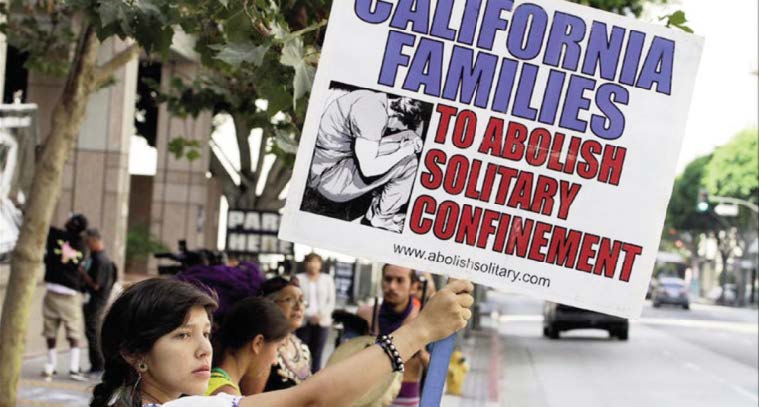DISABILITY COMMUNITY CELEBRATES THE REINTRODUCTION OF THE DISABILITY INTEGRATION ACT
Members of Congress from both side of the aisle came together recently to celebrate the re-introduction of the Disability Integration Act (DIA) at the Senate Capitol Visitors Center.
The Disability Integration Act is a bill that would affirm the rights of people with disabilities and seniors to have the real choice to live in the community by requiring insurance companies that would offer institutional services to also offer those same services in the community.
"At its core, the Disability Integration Act is about one simple thing: that people with disabilities must be treated as equally as those without." said Senate Minority Leader Schumer "People with disabilities are too often denied the choice to receive at-home care and support services. This bill ensures that would never happen again."
The bill, which received bipartisan support in both the Senate and the House in the last Congress, was reintroduced by Senator Schumer and Representative James Sensenbrenner.
"I am proud to re-introduce this bill, because all Americans should share in the American Dream, and that begins in the community in someone's own home," said Representative Sensenbrenner.
It is not a coincidence that the celebrations and the reintroduction took place on January 15th, Dr. Martin Luther King Jr.'s birthday. The Disability Rights Movement has deep ties to the Civil Rights leader and has long marked this day as Freedom Day, with celebrations of the progress that has been made and direct action aimed at furthering the cause. To many in the Disability Community the DIA was made for Freedom Day, and the day the legislation finally passes will forever be known as Disability Freedom Day!
DIA has widespread support in the Disability Community. "This bill builds on the idea that the independent living movement was founded on. DIA will mean that disabled and elderly Americans no longer have to move into institutions to get the services we need to live our lives," said Anita Cameron, the Mistress of Ceremony at the event. The bill ends what disabled activists have long called "the institutional bias" by requiring that any insurer offering long term supports and services must make them available in the community setting rather than only in institutions and nursing facilities.
Council for Independent Living. "As someone who uses attendant services and has spent time in a nursing facility, I can't begin to express how exciting it is that this is finally going to happen." To this end, ADAPT and the broader Disability Community have called upon the House of Representatives to pass DIA before July 26th of this year. ADAPT's history, the issues we are fighting for and our activities can be followed on our web site at adapt.org, our ADAPT Facebook page and on Twitter – look for #ADAPTandRESIST – Adapt.org website

VOTE FOR FREEDOM: The Disability Integration Act was reintroduced by Senator Schumer and Representative James Sensenbrenner.
VA To Accelerate Claims For Purple Heart Recipients
At a congressional hearing in late February, VA Secretary Robert Wilkie announced that effective in April, it will provide priority disability benefits claims processing for the initial claims from discharged combat Veterans who have been awarded the Purple Heart Medal. Secretary Wilkie announced his decision at a hearing before the House Appropriations Subcommittee on Military Construction, Veterans Affairs, and Related Agencies.
"Those who hold the Purple Heart, the recognition of wounds taken in battle, will now receive priority consideration when it comes to claims before the Department of Veterans Affairs," said Secretary Wilkie. The Veterans Benefits Administration will amend its priority processing categories to include initial claims received from Purple Heart recipients on or after April 1, 2019.
Purple Heart recipients are already treated on a priority basis at VA hospitals and are exempt from co-payments for their medical care. The Purple Heart award is the oldest U.S. military decoration and is awarded to U.S. service members for wounds suffered at the hands of the enemy. General George Washington awarded the first purple-colored heart-shaped badges to soldiers who fought in the Continental Army during the American Revolution. In 1932, it was revived to commemorate Washington's 200th birthday.

CIVIL RIGHTS GROUPS CHALLENGE UNCONSTITUTIONAL USE OF SOLITARY CONFINEMENT, DENIAL OF MENTAL HEALTH CARE IN SACRAMENTO COUNTY JAILS
On February 12, 2019, the Prison Law Office, Disability Rights California, and Cooley LLP filed a motion in federal court to halt the unconstitutional use of solitary confinement for people with serious mental illness and the denial of adequate mental health care to people in the Sacramento County Jails.
A copy of the complaint and the motion are available at disabili- tyrightsca.org/cases/mays-v-county-of-sacramen- to. The motion was filed as part of a certified class action lawsuit that was filed in July 2018 on behalf of all people incarcerated in the Sacramento County Jails. The motion challenges the county of Sacramento's practice of confining hundreds of people alone in small, locked cells for 23.5 hours or more per day under a designation called "Total Separation." People in "Total Separation" spend weeks, months, and even years without social contact. More than 75% of them require mental health care. Some have such serious mental illness that they require psychiatric hospitalization.
Experts hired by Sacramento County have described the county's solitary confinement practices as "dramatically out of step with emerging national standards and practices." At least three people have died by suicide in "Total Separation" solitary confinement since the experts made this finding.
"We are calling on Sacramento County to discontinue its use of profound and prolonged solitary confinement. The conditions in Sacramento County's solitary confinement units are harmful, dangerous, and unnecessary. The county must act quickly to end the use of solitary confinement for people with serious mental illness and greatly expand the amount of time people are allowed to spend outside of their cells," said Margot Mendelson, staff attorney at the Prison Law Office.
Goldyn Cooper has been housed on Total Separation (or "T-Sep") status for roughly two and a half months. Describing his experience, he said, "I feel hopeless and am unable to cope with the extreme isolation in T-Sep. I do not have a cellmate and am con fined to my cell for most of the day. Sometimes I am only offered time out of my cell late at night. I feel trapped, like an animal."
The Plaintiffs' motion also challenges the county's failure to provide access to adequate mental health treatment. As the need for mental health care among the jail population has increased, the county has not allocated sufficient resources to meet those needs. As a result, people in psychiatric crisis are routinely placed on long waitlists to receive care, and are housed in tiny concrete cells where a grate in the floor serves as a toilet. Other people who are awaiting psychiatric hospitalization spend days seminaked in "multipurpose rooms" that were never intended for human habitation.
"These serious problems are longstanding, and are the result of the dangerous overrepresentation of people with mental health needs who are incarcerated at the jail and the county's failure to provide the resources to deliver clinically necessary treatment to them," said Tifanei Ressl-Moyer, an attorney at Disability Rights California. "An adequate remedy will be neither simple nor cheap, but it is urgently needed."
Added Cooley Partner Jessica Valenzuela Santamaria, "With this motion, we hope to vindicate the rights of a particularly vulnerable population that is at a heightened risk of decompensating in the county of Sacramento's custody. Freedom from prolonged and oppressive solitary confinement and adequate access to mental health care are critical components of the jail's ability to pass constitutional muster."
The class action complaint also asserts that Sacramento County violates the Constitution by failing to provide adequate medical care and failing to take sufficient measures to prevent suicide. The complaint further alleges system wide violations of federal and state disability law.
Disability Rights California is a non-profit organization that protects the rights of people with disabilities. Visit disabilityrightsca.org

FIGHT FOR FAIRNESS: The motion filed in federal court calls on Sacramento County discontinue its use of profound and prolonged solitary confinement and challenges its failure to provide access to adequate mental health treatment.